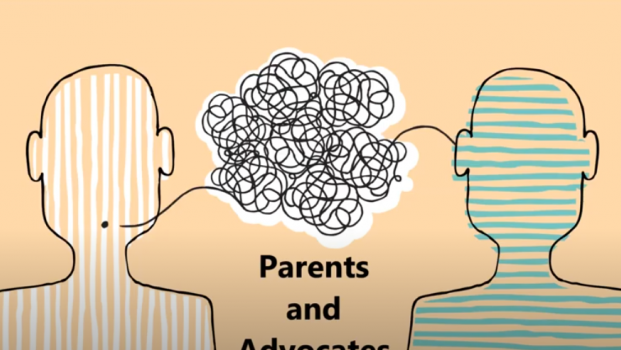Starting college is a time of transition for students and families. It is an exciting time, but parents and advocates may also be experiencing some concerns about their student. CAR’s goal is to empower students by building self-advocacy skills and resilience. CAR is asking parents and advocates to encourage student independence and responsibility. CAR is also here to help students as they learn the differences between K-12 and post-secondary environments.
For more information on the transition to college, please see our Transition Planning for High School Students page as well as the U.S. Department of Education Office for Civil Rights page on preparing for postsecondary education.
PDF: Information for Parents and Advocates
Parents and Advocates:
View this Complete PDF Guide for helpful information regarding the role of Parents/Advocates in the college setting.
Video: Parents and Advocates
Parents, Students, and CAR
Students receive support for their unique needs when they work directly with their CAR Accommodation Specialist. These initial interactions between student and trained professional allow their CAR Accommodation Specialist to gain an understanding of the student's strengths and challenges, and assess CAR's ability to support them in facilitating a successful college experience.
CAR requests that parents and advocates do not sit in on the initial meeting between student and their CAR Accommodation Specialist. This allows the Accommodation Specialist to get a feel for how knowledgeable and confident the student is in sharing information about past services and what accommodations the student hopes to have at the college level.
Get Involved
Start helping your student prepare for college while still in high school. CAR’s application requires verification of disabilities. Disability documentation must be recent and verify the nature and extent of the disability and clearly show the need for each of the student's requested accommodations. Individual Educational Plans, while helpful, are not sufficient disability verification. While still in high school, plan ahead and request that your student's school give you updated evaluations or diagnostic testing with adult norms before you leave. Learn more on our Application Process page and Transition Planning page.
Learn about evaluations, school assessments, and many other ways to help your student in this comprehensive guide:
PDF: A Guide to Preparing Your Child with a Disability for Life Beyond High School
Rules governing disability services
Confidentiality laws prohibit CAR staff from discussing students' information with anyone—including parents—without written consent. CAR recognizes the constructive role parents and advocates play in encouraging their student to apply for necessary accommodations—and then allowing the student to take on that responsibility themselves. Choosing whether or not to obtain disability accommodations is one of the valuable experiences students will gain in college.
Rules governing disability services are different in college than in K-12. Here at Lane Community College, the entire accommodation process must be student-initiated. The student is responsible for their own accommodation requests and disability-related decisions. CAR cannot honor requests from parents or advocates.
CAR encourages students to have an open dialogue with their parents/advocates. CAR suggests parents and advocates meet with their student beforehand to:
- Assist the student in becoming a competent self-advocate.
- Ensure the student knows their diagnosis and can communicate needs, strengths, interests, and challenges.
- Allow the student to practice stating their needs.
Confidentiality laws
What is FERPA?
FERPA is a federal law that protects the privacy of a student’s educational records. The law applies to all schools that receive funds under an applicable program of the U.S Department of Education. Here is what FERPA means for parents/advocates:
- All student information will be given directly to the student and not to parents/advocates.
- College representatives are prohibited from discussing information about a student’s academic records with parents/advocates.
Per CAR's policies and procedures, a college student can sign a release (FERPA) giving staff permission to share information with parents/advocates with the student present. However, they should know that even if a student signs a release, staff generally only communicate with parents/advocates in the presence of the student. Also, students are required to handle any matters related to the CAR office, including requesting accommodations and reporting issues. We do not work with the parent in place of the student.
FERPA in college can be a big adjustment for students and families. College students are working toward increased independence and responsibility and allowing them to determine who receives their academic information is a part of that growing independence. As with many aspects of the college experience, increased communication between the parent and the student often yields a smoother experience.
Learn more about how FERPA works at LCC on our Release of Student Records webpage and Access to Records for Students with Disabilities.
Here is a PDF explanation of frequently asked questions about FERPA from the Family Policy Compliance Office
Resources
- ORAHEAD webpage - Oregon Association on Higher Education and Disability
- Letter to Parents from the Office of Civil Rights webpage
- U.S. Department of Education FAQs about FERPA webpage
- University of Oregon Accessible Education Center webpage
- Oregon commission for the blind webpage
- Oregon Developmental Disability Services webpage
- Oregon Vocational Rehabilitation (VR) webpage
